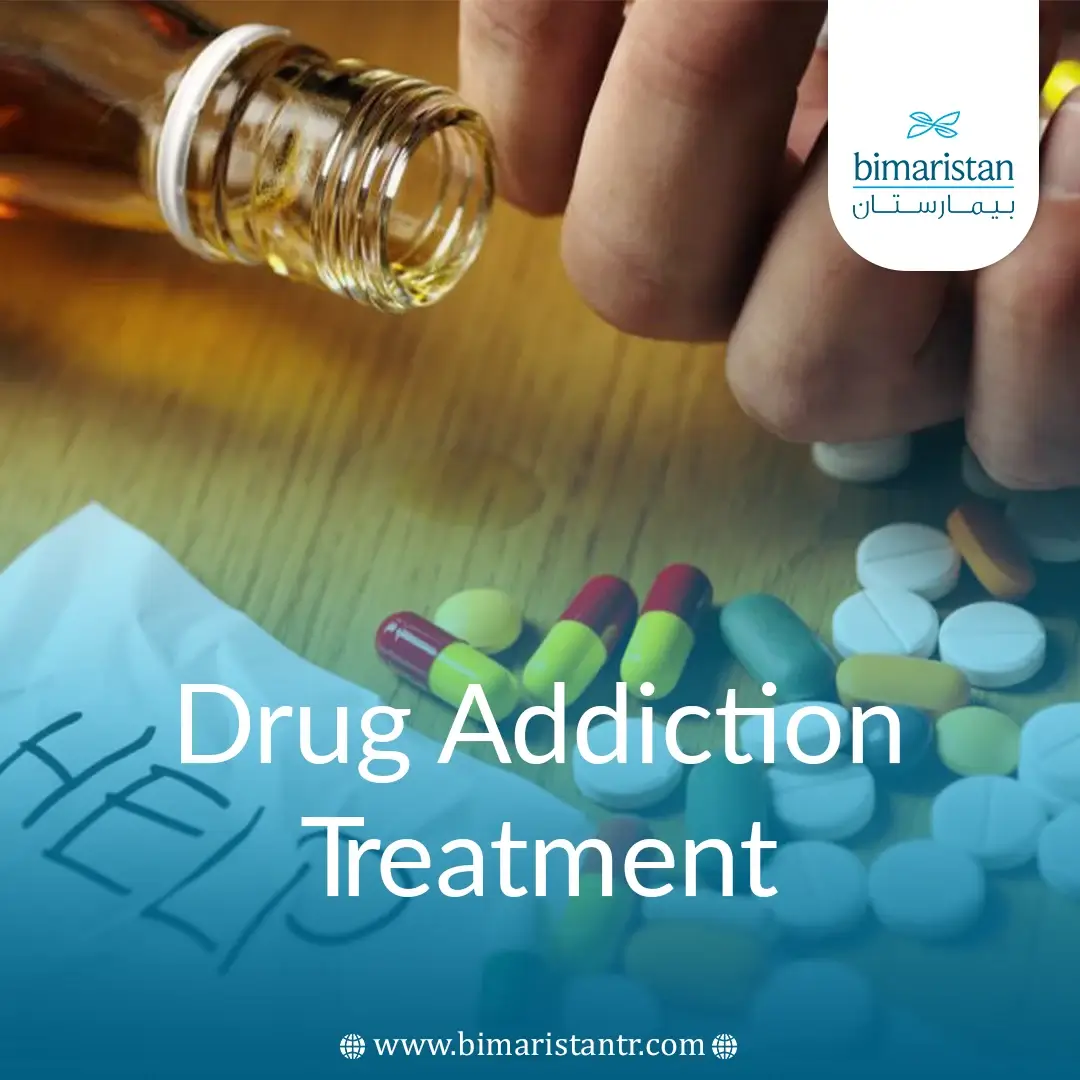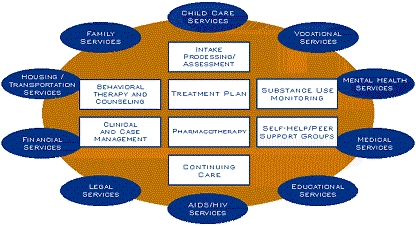The importance of mental health care in dual diagnosis rehab NJ systems
Wiki Article
A Comprehensive Guide to Substance Abuse Rehab
Substance Abuse rehab, commonly described as rehabilitation, is a structured procedure made to help people get over dependence on medicines, alcohol, or various other habit forming compounds. It is not simply concerning cleansing-- it is a trip of mental, psychological, and physical makeover. Rehabilitation facilities give safe settings where individuals can challenge the source of their addiction, address mental triggers, and find out coping devices to receive long-lasting sobriety. This procedure is guided by qualified specialists, consisting of specialists, medical physicians, and therapists who comprehend the complex nature of addiction as both a behavior and physiological problem.Understanding the Core of Substance Abuse Abuse Rehabilitation
At its core, recovery is regarding restoring a person's life. Addiction often leaves behind deep scars-- stretched relationships, financial distress, health issue, and mental illness. With comprehensive rehabilitation programs, people are provided the devices to fix these aspects progressively. Rehabilitation isn't just concerning staying away from compounds; it's concerning recovering control and finding one's sense of self-worth. The programs highlight structure, consistency, and personal accountability, which are key to long-term recovery success. Every tiny landmark throughout rehab acts as a foundation for lasting soberness.In addition, Substance Abuse recovery is not a one-size-fits-all strategy. It recognizes that each person's dependency tale is distinct-- what resulted in Substance Abuse misuse, just how it advanced, and exactly how recovery can be continual vary widely. Consequently, therapy centers tailor treatment plans based upon private assessments, making certain that every individual gets assistance that lines up with their psychological state, dependency history, and life circumstances. This customized approach considerably improves healing outcomes and assists prevent regression once people reintegrate into day-to-day life.
The Benefits of Inpatient Rehab Programs
Inpatient rehab, likewise referred to as household therapy, offers one of the most effective techniques for those fighting extreme Substance Abuse dependency. Among its key benefits is the distraction-free and organized setting. When an individual gets in an inpatient center, they are temporarily removed from external triggers-- such as buddies who use substances, stressful workplaces, or family conflicts-- that might hinder their recovery. This seclusion from adverse impacts enables individuals to focus completely on healing. Living within a monitored and supportive setup develops the security needed to break old habits and form healthier patterns of actions.Another major advantage of inpatient rehabilitation is the 24/7 specialist guidance offered to each patient. Withdrawal signs and symptoms from medicines or alcohol can be unforeseeable and, in some situations, dangerous. Inpatient facilities have clinical groups that offer round-the-clock treatment, making sure individuals are safe and comfy throughout cleansing. Beyond physical wellness, constant supervision additionally uses emotional confidence-- clients know that assistance is available at any kind of time, which minimizes anxiety and constructs count on in the recuperation process. This prompt access to clinical and mental assistance substantially enhances the success price compared to outpatient treatment for extreme addictions.
Last but not least, inpatient rehab programs cultivate a strong feeling of community and responsibility. Clients connect with others who share comparable battles, take part in team treatment, and participate in activities that motivate synergy and empathy. This atmosphere supports good understanding and minimizes sensations of isolation commonly related to dependency. By getting in touch with peers and gaining from their experiences, individuals create social bonds that proceed to support them even after leaving the center. This feeling of belonging, incorporated with consistent expert support, makes inpatient rehabilitation a highly efficient foundation for lasting recuperation.
Inpatient Rehabilitation Services Provided
Inpatient rehab facilities use a varied variety of services designed to treat the body, spirit, and mind all at once. The first stage generally includes medical cleansing, a process that safely eliminates compounds from the body while handling withdrawal signs. Detox is overseen by clinical specialists who might carry out medicine to reduce pain and stop issues. People change to structured daily programs that consist of therapy, health, and therapy tasks when detoxification is total. This integrated strategy makes sure that clients not only get over physical reliance but additionally address mental and emotional facets of addiction.Therapeutic solutions are at the heart of inpatient rehabilitation. Facilities offer person therapy sessions, where people work individually with accredited therapists to discover the underlying sources of their dependency-- such as trauma, psychological health and wellness problems, or unresolved psychological pain. Cognitive-behavioral treatment (CBT), dialectical behavior modification (DBT), and motivational speaking with are among the most usual evidence-based techniques made use of. Furthermore, team therapy sessions supply an encouraging area for people to share experiences, gain perspective, and establish social skills. Family members treatment is likewise regularly consisted of, helping to restore trust and enhance interaction in between clients and their liked ones.
Past conventional therapy, several inpatient programs include holistic and leisure services to promote general health - Inpatient rehab. Yoga, meditation, art therapy, and health and fitness programs help in reducing stress and show mindfulness. Nutritional therapy makes certain that patients rebuild physical health and wellness, as Substance Abuse commonly diminishes the body's crucial nutrients. Some rehab centers even offer employment training and instructional workshops to aid people plan for reintegration right into culture. These varied solutions are made to recover the entire individual-- not simply treat addiction signs-- by promoting durability, function, and balance
Why You Should Consider Outpatient Programs
While inpatient rehab supplies a extensive and immersive method, outpatient programs offer an alternative that permits adaptability for individuals who can not commit to permanent property treatment. Outpatient rehab makes it possible for individuals to get structured treatment and medical support while keeping their everyday responsibilities-- such as job, household, or school treatment. For many people with moderate to modest addiction, outpatient therapy uses the perfect equilibrium between recuperation and everyday life. It permits clients to exercise the coping skills they find out in real-world environments, reinforcing their durability despite daily obstacles.Another factor to consider outpatient programs is their cost-effectiveness. Inpatient treatment can be pricey because of holiday accommodation, meals, and 24-hour guidance, which might not be financially viable for everyone. Outpatient programs, nevertheless, typically cost much less because they do not need household stays. Lots of centers offer sliding-scale repayment alternatives or accept insurance coverage to make treatment easily accessible. For those that have already completed inpatient rehabilitation, transitioning right into an outpatient program acts as a useful continuum of treatment, aiding maintain responsibility and stop regression via ongoing support.
Furthermore, outpatient programs use a high level of customization. Clients can select in between partial a hospital stay programs (PHP), extensive outpatient programs (IOP), or typical outpatient care, depending on their level of need. Each choice supplies differing levels of framework and time dedication. IOPs typically involve several therapy sessions per week, while standard outpatient care could consist of once a week therapy sees. This versatility makes sure that individuals can get professional help he said customized to their recuperation phase, making outpatient programs a functional and equipping choice for long-term recuperation upkeep.

Checking Out Various Other Therapy Alternatives basically Abuse Recuperation
Past inpatient and outpatient rehab, there are several other treatment options available for individuals looking for recuperation from Substance Abuse dependency (substance abuse treatment Morris County). Medication-assisted treatment (FLOOR COVERING) is one such approach, combining suggested drugs with behavior treatment to take care of withdrawal signs and minimize food cravings. Medicines like buprenorphine, methadone, or naltrexone are typically utilized in opioid addiction therapy, while acamprosate or disulfiram might support alcohol recovery. MAT aids support brain chemistry, allowing people to concentrate on therapy and lifestyle adjustments without navigate here the frustrating discomfort of withdrawal
Alternate therapies are additionally ending up being increasingly prominent in Substance Abuse Abuse therapy. These may consist of alternative practices like acupuncture, horse therapy, adventure-based therapy, and spiritual healing programs. While these strategies may not change conventional treatment, they can match it by improving psychological regulation, self-awareness, and self-confidence. The goal of checking out different treatment alternatives is to produce a recuperation plan that reverberates with each individual's worths, beliefs, and way of life. A personalized mix of treatments typically generates the most lasting outcomes, equipping people to live a fulfilling, substance-free life.
The Path to Long-Term Soberness and Healing
Completing rehabilitation-- whether inpatient or outpatient-- is just the beginning of a long-lasting recuperation journey. Aftercare programs play a vital role in preserving soberness and preventing relapse. These programs might consist of ongoing therapy, assistance groups like Narcotics Anonymous or Twelve Step Programs, and sober living arrangements that provide ongoing structure. Consistency and neighborhood are essential; individuals who stay linked to recuperation networks are most likely to sustain long-lasting progression. Rehabilitation teaches the required coping skills, however aftercare makes sure that those abilities are used and strengthened in real-life situations.Long-term healing likewise depends upon way of living adjustments that sustain psychological and physical health. Developing healthy and balanced habits-- More about the author such as regular exercise, balanced nourishment, and mindfulness techniques-- aids recover equilibrium to the mind and body. Participating in deliberate tasks like offering, going after pastimes, or reconnecting with liked ones can fill up the emotional void left by Substance Abuse use. Concentrating and establishing a favorable state of mind on future goals give recovering people a restored feeling of identification and direction. Sobriety is not about starvation; it has to do with redeeming life's richness and opportunities.

Via detailed rehab programs, individuals are given the devices to repair these aspects gradually. Inpatient rehabilitation programs cultivate a strong sense of area and liability. While inpatient rehab offers a extensive and immersive method, outpatient programs provide a choice that permits versatility for individuals that can not dedicate to full-time household treatment. Outpatient rehab makes it possible for individuals to receive organized therapy and clinical assistance while maintaining their day-to-day obligations-- such as college, work, or household treatment. Beyond outpatient and inpatient rehab, there are numerous other therapy options readily available for individuals looking for recovery from Substance Abuse addiction.
Report this wiki page